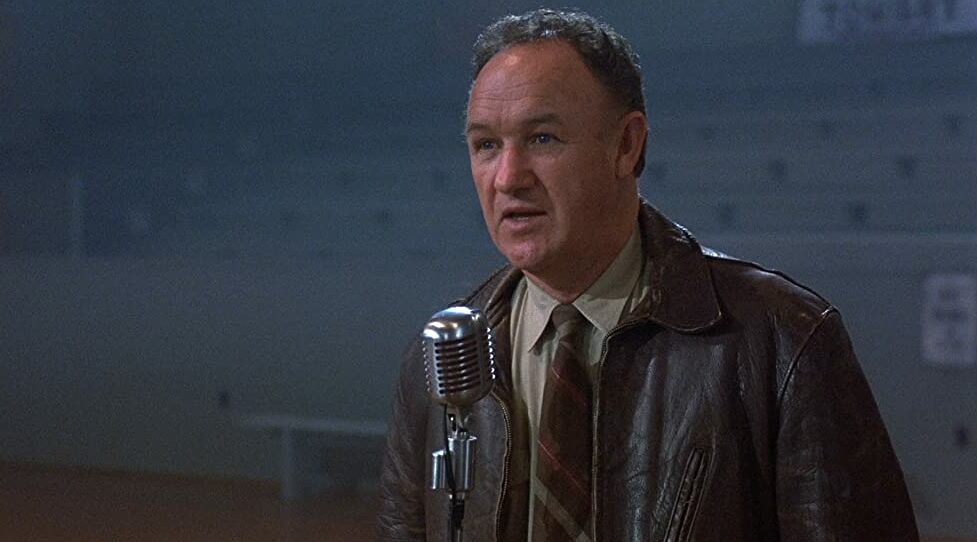Princeton, WV. In a Proverbial podcast episode entitled “Not Perfect, Just Dumb,” host Joshua Gibbs begins with the aphorism, “the truth will set you free, but first it will make you angry.” Gibbs argues that such truths are never said to your face by someone else. Rather, you must speak them to yourself. Gibbs’ argument is valid and entertainingly delivered, as is most everything he writes and speaks. However, several truths that free but first cause anger have been offered to me to my face by someone else, and these moments provide the plot points of this essay.
Human beings speak. Speech is one of the dividing lines between us and the animals. Our speech takes the form of requesting, commanding, inquiring, and declaring. We speak as a means to connect with ourselves. We speak to connect with other humans. We speak to connect with ideas and with the Divine. We hope our speech inspires thought and action. Of all the speeches I have heard in-person and not in a movie, or play, recording, or manuscript, a few have reached the pinnacle of being inspirational. This essay will consider several of these inspirational speeches, which adhere to the following definition: a speech that comes from someone outside ourselves, calls us to seek the good, and leaves the choice up to us.
I Never Seen a Bulldog Fly
The temptation to quit when hardships seem insurmountable is a desire shared by humans from infancy to old age. According to Aristotle, courage is a fundamental virtue. On the battlefield, one can display a lack or abundance of the virtue. Fortunately, too, sports can provide a way to learn and test courage. Because of this, speeches are often needed to inspire the athletes to face their fears. Sports often require speeches from parents to their players, from players to their teammates, and from coaches to their players. During high school, I played the sports our school had available, basketball being the main sport. I had two different coaches throughout those high school years of playing basketball.
One coach, the younger of the two, was young enough when he took the helm as Head Coach to run the court with us at practice. He and his Assistant Coach would often lace up their high-tops, or make do with their penny-loafers, when it came time to scrimmage. Sometimes we needed the extra players because our team had just enough athletes to fill a starting squad but not enough for a challenger squad. Regularly, that young Head Coach admitted his desire to be able to return to his high school years and play basketball again. He often said he’d give his right arm for the opportunity. The team comedian, who was also the school comedian, would tell us, when not in the presence of the Head Coach, that if the Head Coach gave up his right to play basketball again, he’d not be a very good basketball player because he was right-handed.
At halftime of a road game we were losing and should have been winning, that young Head Coach delivered a speech meant to inspire us to not quit but to band together and play to victory. The ceiling, the fluorescents gave as much light to the room as a mumbler gives volume to his voice. The Head Coach called us to huddle up around him. Our jerseys and t-shirts looked like dirty laundry, and we all stunk, our deodorants long worn out by the long first half of running up and down the court. But I noticed that the Head Coach’s oxford shirt had grown on him like bed sheets too large for their frame. He had worn his shirt all day, from teaching classes to driving the game bus, to commanding us, without success, from the bench. His young face had bags beneath his eyes. The edges of his hairline revealed small touches of gray. Whatever tiredness or frustration I felt, I figured that he felt it more and for deeper reasons. So I listened when he spoke. Such a man would have something inspirational to say.
The young Head Coach spoke of eagles. He said eagles fly above the storms. He said we were in a storm. Be like the eagle, he said. Soar over the storm clouds. Be like the eagle. He told us to come out of the locker room when we were ready to play for real. Then, he stepped past us and left the locker room. The Assistant Coach followed him.
The buzz I felt from the Head Coach’s inspirational speech seemed to touch the air around me. The fluorescent lights brightened like a sky of sunlight parting dark clouds and giving sight to the blind. The gray walls and floors reflected the light. Everything seemed washed anew in a bright, clean, invigorating hope, and I believed the rest of the team felt the same way. We could fly over the opposing team and sail high above their storm clouds. We could, we would be eagles.
But the team comedian spoke up. He said he thought we were the Bulldogs.
And we were. Our school mascot was the bulldog. The schools we played against were either some form of warrior (patriot, crusader, charger), or they were eagles. We were the only dogs. We all laughed at the team comedian’s remark. Our laughter swatted away what the Head Coach had offered like it was a fly. We returned to the court. I do not remember if we won the game or if we even played well enough to win.
Stupid Face
It is the nature of youth to often be stupid. The young tend to not know what they don’t know, yet they move about as if they know everything that matters. I was such a youth. Towards the end of high school, I thought corporate religion was a waste. Too much guilt and failure and guilt brought on by failure. I’d had enough. My body language, especially at church, reflected my inner man. However, I remained part of the church choir and, sometimes, sang solos during church services, all while harboring a fantasy that I would one day have a record deal and be spoken of as an artistic prodigal. Until one lady called me out on my stupidity.
She was an important musician in our church, and she also led the school choirs for a time. When I picked up playing guitar, she would play piano for my church solos, which required that we practiced a few times before performing during a church service. I sat down with her in the church auditorium one Sunday after the morning service and was ready to practice. Before I could strum a chord or sing a note, she said to me, “You’re stupid.”
From there, she described my character based on my physical demeanor, and both were found wanting. “You’re stupid if you think you’re going to go somewhere as you are.”
We did not practice a song that day.
I might even have been, rightly, removed from the schedule for church solos. And though I did not like what she said, I knew she spoke the truth, and I needed to learn it. Learning quickly, however, has never been my trademark. That brings us to the last inspirational speech.
With my outward behavior tempered, I could avoid more “you’re stupid” speeches, but the heart of the man matters more than the face of the man, and, fortunately, one man took the time and the risk to speak through my face to my heart.
All Games Go Out the Window
Another Sunday morning church service had ended. A few of my friends and I walked across the church parking lot to load into our cars and drive to lunch. Except for one guy who’d graduated the previous year and skipped out on college, we were all high school seniors, and graduation was either very close or had recently happened, and college awaited us. I’d been accepted to a school in North Carolina and planned to attend in the fall of that year with at least two of my high school friends. I also planned to cut myself free (adrift) from God and church. I didn’t share that plan with anyone, probably because I knew it was foolish. Just before we reached our cars, a man, whom we all knew, approached us. He was the father of a girl in our senior class. Most guys kept their distance from him because he did not suffer fools. More than likely, a rude comment was muttered by one or several of us about the man, but he gave no indication as to whether or not he heard it.
Did he call me out by name? Or did he address the lot of us, and I was the only one to stay put? Because the next thing I remember is that all my friends parted like tall grass and continued towards their cars, while I was left to field questions from the man about my college plans. Over his shoulder, I could see my friends waving at me to come on and making fun of me for having to talk with him. But during our brief exchange, he asked about my intentions concerning God and church, and I admitted my plans to leave both.
“Whacha ya goin’ to do?,” the man said. Though an adult and a soldier and living in the South, the man always spoke with his native Brooklyn accent, underscored with Puerto Rican heritage. “Whacha ya goin’ to do when you’re lookin’ to get married?”
“What do you mean?”
“When it comes to getting married and having kids, all games go out the window. Things get serious. All the partying, all the nonsense you think you can get into without it messing you up, it won’t save you. And you think you’re gonna meet someone you can share a bed with, trust your children with when you’ve said ‘see ya later’ to God and church?”
“I hadn’t thought of it like that.”
“Yeah. That’s what I thought. And I’m sure the same goes for your friends. But you’ve all been raised to know better. Now you’ve got to choose better. And I hope you do.” Then the man moved aside and let me get to my friends. I remember nothing about where we ate lunch or what we talked about during lunch, but that man’s speech struck and sunk deep down, somewhere far beneath the surface of my soul and, eventually, flourished.
The young Head Coach called us to the good. And though that young Head Coach could have used a better metaphor, the good does not depend on poetry for its existence. The church musician called me to the good. The man in the parking lot did too. We need inspirational speeches to seek hard after that which is good. This is true and mysterious, for no matter how eloquent or brief or clumsy or terse the speech, we each have a choice to make when we hear it.












Thank you for this insight….
Comments are closed.